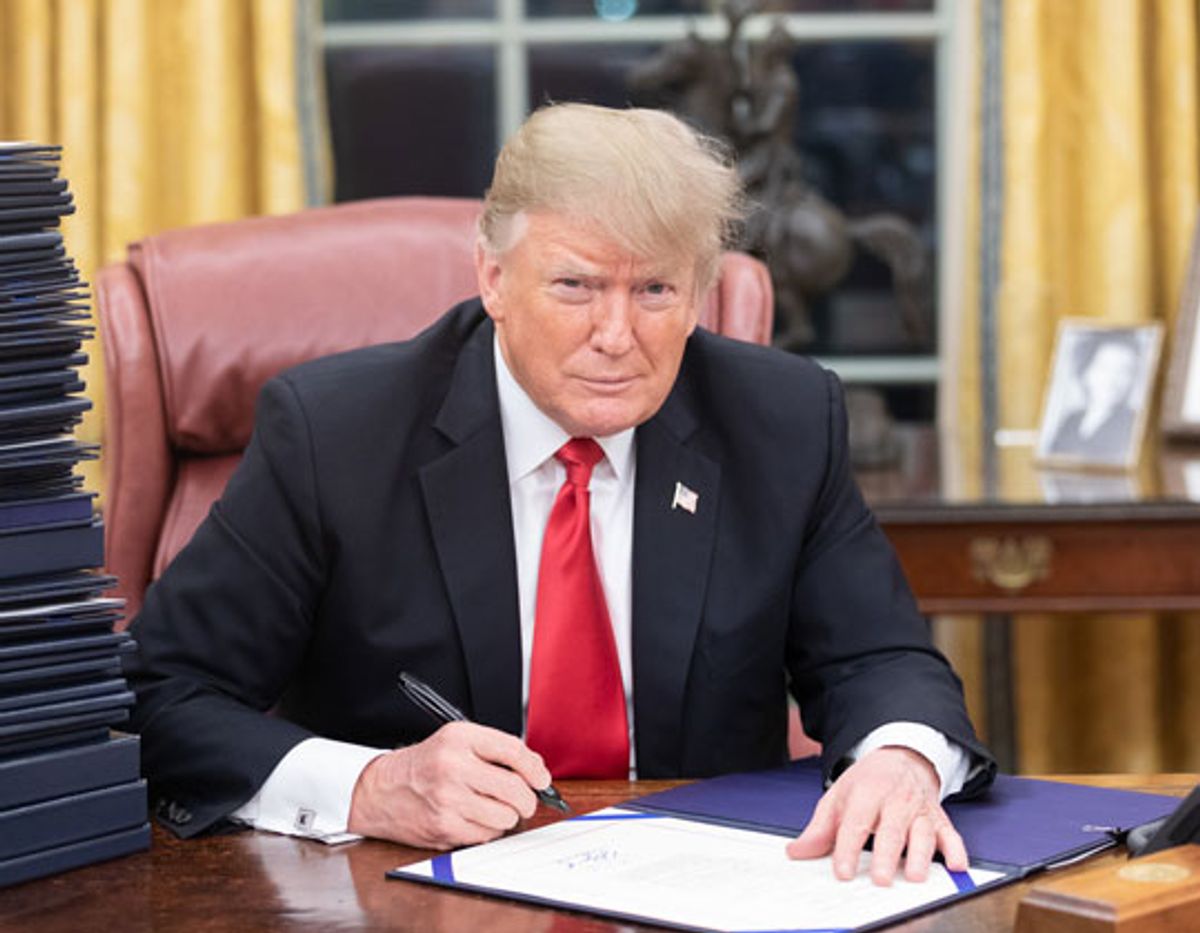
Trump Designates Antifa a 'Major Terrorist Organization' After Kirk Assassination
LONDON — President Donald Trump announced Wednesday that he is designating the anti-fascist movement known as antifa a "major terrorist organization," following the assassination of conservative leader Charlie Kirk last week.
Trump made the declaration via Truth Social while on a state visit to the United Kingdom, shortly after attending a state banquet at Windsor Castle. "I am pleased to inform our many U.S.A. Patriots that I am designating ANTIFA, A SICK, DANGEROUS, RADICAL LEFT DISASTER, AS A MAJOR TERRORIST ORGANIZATION," he wrote. He also called for investigations into those funding antifa, urging they be pursued "in accordance with the highest legal standards and practices."
The move comes amid an intensified administration crackdown on groups it accuses of inciting political violence. Senior officials linked the designation to the killing of Kirk, 31, who was shot while speaking at Utah Valley University. A 22-year-old suspect has been charged in the death, which has fueled partisan tensions in Washington.
Legal experts say the designation raises significant challenges. Unlike foreign terrorist organizations listed by the State Department, there is no federal mechanism for designating a decentralized domestic movement like antifa as a terrorist group. Past analyses indicate presidents lack unilateral authority to label U.S.-based political movements as terrorist organizations, and such a move would likely face swift court challenges.
Congressional Republicans have pushed for months to classify antifa-linked activities as domestic terrorism. A House resolution earlier this year called for prosecuting antifa-related violence and urged a legislative framework to treat certain antifa actions as terrorism. However, analysts note the resolution lacks the statutory tools needed for a formal designation.
Administration officials suggested they may pursue alternative measures, including expanded criminal prosecutions, increased scrutiny of nonprofit and donor networks, and potential use of racketeering laws to target coordinated violence.
Civil liberties groups warned that such actions could ensnare lawful protests and chill free speech. Several liberal nonprofits accused the administration of exploiting Kirk’s killing to criminalize dissent.
Supporters of the designation called it a necessary response to political violence, while critics labeled it an overreach threatening constitutional protections. Legal scholars predict federal court battles if the administration pursues sanctions, donor investigations, or broader criminal charges against loosely affiliated activists.
White House officials said they will brief Congress and law enforcement this week on next steps. Analysts caution that designations of domestic movements often conflict with First Amendment protections and executive authority limits, making the announcement’s practical impact uncertain without new legislation or targeted, evidence-based prosecutions.
 Schumer says Kimmel should take Trump, FCC, Disney to CourtNext PostSuspect in Pennsylvania police shooting identified: report
Schumer says Kimmel should take Trump, FCC, Disney to CourtNext PostSuspect in Pennsylvania police shooting identified: report
THE REAL STATE OF THE UNION TONIGHT AT 7PM ET.
Record Stock Market highs. Border secured. Cartels crushed. “America is back.” This is MUST-SEE TV. Wall-to-wall LIVE team coverage starts TUESDAY at 7PM ET on the RAV network!

